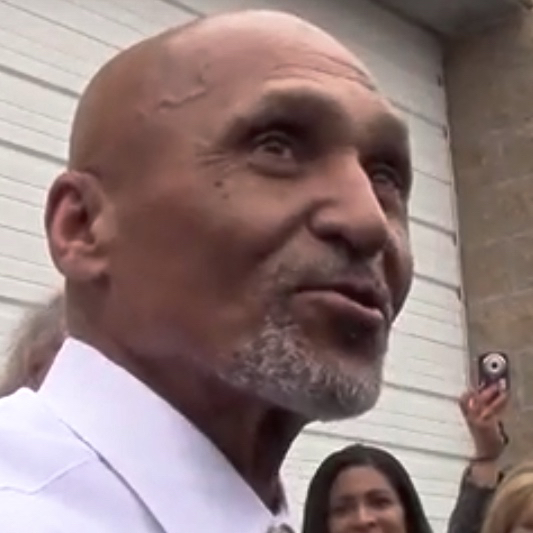Rascals case in brief
In the beginning, in 1989, more than 90 children at the Little Rascals Day Care Center in Edenton, North Carolina, accused a total of 20 adults with 429 instances of sexual abuse over a three-year period. It may have all begun with one parent’s complaint about punishment given her child.
Among the alleged perpetrators: the sheriff and mayor. But prosecutors would charge only Robin Byrum, Darlene Harris, Elizabeth “Betsy” Kelly, Robert “Bob” Kelly, Willard Scott Privott, Shelley Stone and Dawn Wilson – the Edenton 7.
Along with sodomy and beatings, allegations included a baby killed with a handgun, a child being hung upside down from a tree and being set on fire and countless other fantastic incidents involving spaceships, hot air balloons, pirate ships and trained sharks.
By the time prosecutors dropped the last charges in 1997, Little Rascals had become North Carolina’s longest and most costly criminal trial. Prosecutors kept defendants jailed in hopes at least one would turn against their supposed co-conspirators. Remarkably, none did. Another shameful record: Five defendants had to wait longer to face their accusers in court than anyone else in North Carolina history.
Between 1991 and 1997, Ofra Bikel produced three extraordinary episodes on the Little Rascals case for the PBS series “Frontline.” Although “Innocence Lost” did not deter prosecutors, it exposed their tactics and fostered nationwide skepticism and dismay.
With each passing year, the absurdity of the Little Rascals charges has become more obvious. But no admission of error has ever come from prosecutors, police, interviewers or parents. This site is devoted to the issues raised by this case.
On Facebook
Click for earlier Facebook posts archived on this site
Click to go to
Today’s random selection from the Little Rascals Day Care archives….
Click for earlier Facebook posts archived on this site
Click to go to
Today’s random selection from the Little Rascals Day Care archives….
‘Believe the children’ (after they’ve been interrogated into submission)

Wright
Dec. 10, 2017
“Controversy over the credibility of children’s testimony has congealed into a debate between those who demand that we ‘believe the children’ no matter how outlandish their allegations and those who maintain that children are inherently so suggestible that their testimony can never be relied on upon. An interesting question that remains is why children are not believed when, as often happens, they specifically deny charges at the time they first arise….
“Why isn’t the child allowed to say no? A widening body of research shows that repeated questioning of children, especially by authoritative adults with a specific bias, will often lead to answers that conform to the interviewers’ expectations….
“Divorce, neglect, unsafe neighborhoods, bad schools – these primary social problems are not the fault of the people to whom we have entrusted our children. Forcing children to invent stories of abuse is abuse….”
– From “Child-care Demons” by Lawrence Wright in The New Yorker (Oct. 3, 1994)
![]()
Mumma victimized by prosecutor’s perverse priorities

newsobserver.com
Joseph Sledge
Jan. 16, 2016
“Joseph Sledge spent 37 years in prison for a crime he didn’t commit. At his trial, the state paid a lying snitch to testify against him. While he was in prison, (Jon David, the latest Bladen County district attorney) opposed the DNA testing that would eventually prove Sledge’s innocence. And when the long-delayed tests showed Sledge wasn’t the culprit, the state waited another two years to release him from prison.
“Now that Sledge is finally free, the only person being punished is the lawyer who fought to prove his innocence, Chris Mumma. On Thursday, the State Bar found that Mumma violated professional ethics by testing a water bottle for DNA without permission from its owner – all in an attempt to gain an innocent man his freedom against long odds. (The test of the water bottle was inconclusive and had no impact on the final outcome.)….
“In all the cases where Mumma has freed innocent people, no prosecutor has ever faced charges….Instead, the State Bar sent a message that lawyers who expose the system’s misdeeds could be subject to retribution….”
– From “Let’s punish lawyers who put innocent people in prison, instead of those who free them” by Kristin Collins at NC Coalition for Alternatives to the Death Penalty (Jan. 15)
Three years ago I took DA David at his word when he promised:
“I really see us as sharing the goal of making sure (Sledge’s) conviction rests on credible and substantial evidence. I’m going to go where the truth leads in this matter.”
I was naïve. As it turned out, David’s true passion wasn’t for exonerating an innocent man but for punishing his lawyer.
![]()
Journalists, too, suffer ‘incurable blind spots’
Jan. 4, 2012
 “A few years back, I met a fellow investigative journalist in North Carolina….The subject came around to the Little Rascals case. He assured me the day care workers were guilty….
“A few years back, I met a fellow investigative journalist in North Carolina….The subject came around to the Little Rascals case. He assured me the day care workers were guilty….
“I told him about how the McMartin case in California had been the first nationally publicized case to use interviews that practically bullied children into reporting mythical, often totally implausible abuse. Little Rascals was a textbook case of the same kind of tactics, and Ofra Bikel’s three fine documentaries left no doubt about this terrible miscarriage of justice.
“Yet my friend refused to listen to any other evidence or point of view. It transpired that his wife had recovered ‘memories’ of sexual abuse – another subject on which he would hear no other evidence….
“I tell you this just to let you know I am familiar with cases in which otherwise objective journalists develop seemingly incurable blind spots.”
– From a 1997 letter to Columbia Journalism Review by Mark Pendergrast, author of “Victims of Memory,” challenging criticism of the False Memory Syndrome Foundation
Officer Toppin sure had an eye for ‘red flags’
July 24, 2013
“(Edenton police officer Brenda) Toppin, who conducted the first interviews of children allegedly abused at the center, testified that ‘In the early interviews, I had very few children disclosing to me…. Most of the children were not telling me specifically about Mr. Bob.’
“ ‘Red flags,’ however, caused her to continue her questioning. The ‘red flags’ included children being tense when the subject of the day-care center was mentioned, she said, and not talking to her as normal children would.”
– From the Associated Press (December 4, 1991)
It doesn’t take much reading between the lines to see Brenda Toppin’s persistence in the face of “very few children disclosing to me” or her overreaction to those absurdly vague “red flags.”
A surviving fragment of tape laid out even more saliently her abusive interview technique. Read for yourself a transcript of one of Toppin’s interviews with a child. The transcript entered the court record during the appeals process.











0 CommentsComment on Facebook